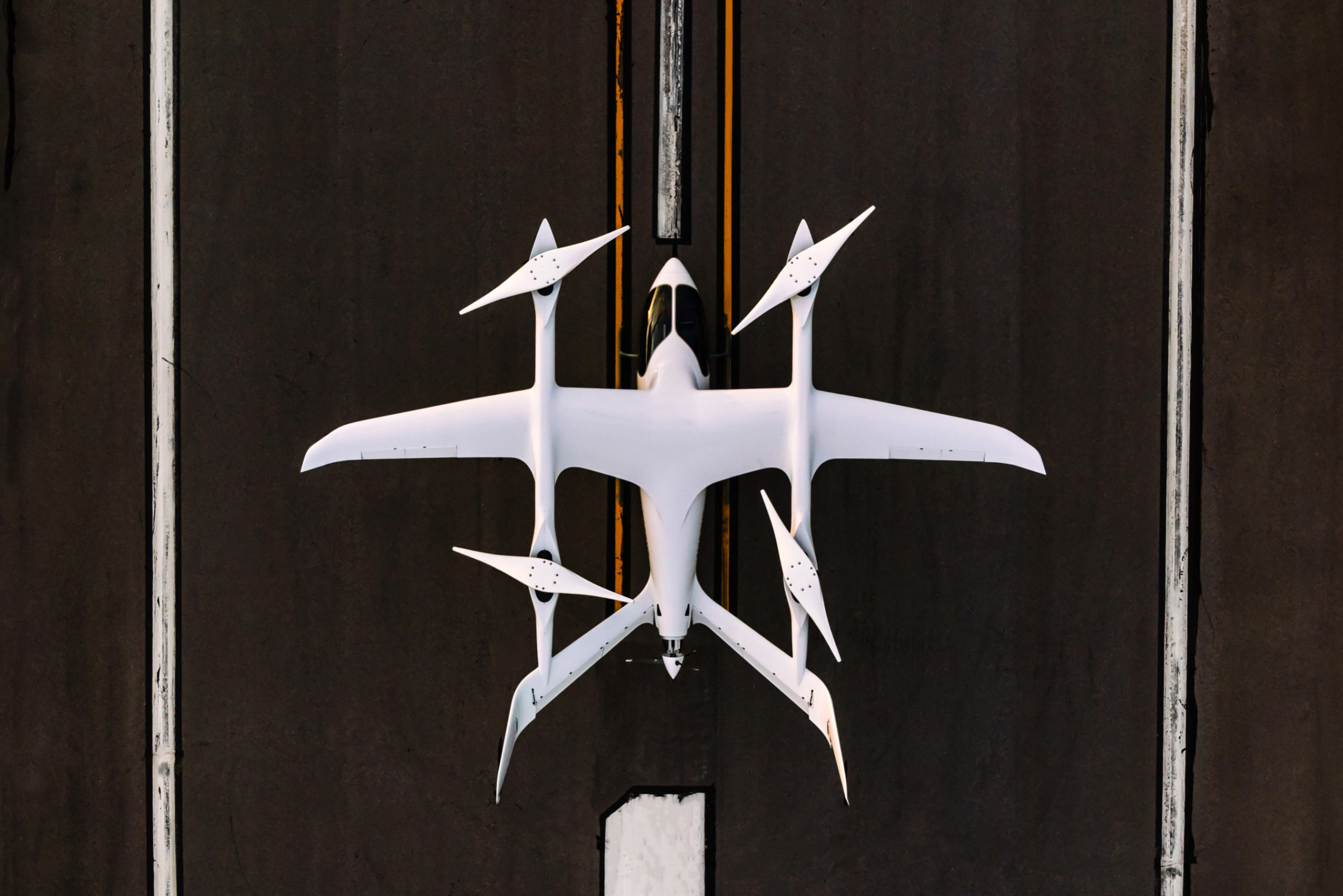ImpactAlpha, May 19 — As air travel rebounds, so too does the airline industry’s massive carbon footprint. Aviation was responsible for 915 million tons of carbon dioxide emissions in 2019 and was expected to be one of the biggest remaining carbon emitters by 2050.
Now comes a raft of green aviation startups aiming to decarbonize flight that are raising big rounds from big-name investors. The latest: BETA Technologies, which raised $368 million in a Series A financing to develop ALIA, an electric vertical aircraft the company says can fly nearly 300 miles carrying up to six people or 1,500 pounds of cargo.
“The development of sustainable and decarbonizing technologies will help facilitate the transition to a low-carbon economy and protect the planet for future generations,” said Kara Hurst of Amazon, which invested in BETA via its $2 billion Climate Pledge Fund (see, “Amazon’s $2 billion Climate Pledge Fund ups the ante”). The round led by Fidelity Management & Research Company, the investment advisory group to Fidelity’s family of mutual funds.
Cli-fliers
Other green aviation startups include Hollister, Calif.-based ZeroAvia, which is developing a two-megawatt hydrogen-electric regional airplane. It raked in $74 million to date from investors, including Breakthrough Energy Ventures, Ecosystem Integrity Fund and British Airways.
Los Angeles-based Universal Hydrogen is aiming to retrofit commercial aircraft with hydrogen-based powertrains with backing from Playground Global, Airbus Ventures, JetBlue Technology Ventures, Toyato AI Ventures and others (see, “Universal Hydrogen scores $20.5 million to green commercial aircraft”).
Boston-based Regent Craft raised $9 million for its electric hovercraft from Y Combinator, Marc Cuban, Peter Thiel’s Founders Fund, Caffeinated Capital and others.
Into production
BETA will use the investment to ramp up production and “meet aggressive certification milestones,” says CEO Kyle Clark, and roll out its charging infrastructure by 2024.
The company’s partners and customers include the U.S. Air Force and UPS. Biotech firm United Therapeutics plans to use ALIA to transport its synthetic organs for human transplant. Blade Urban Air Mobility will transfer passengers for longer commuter routes.











